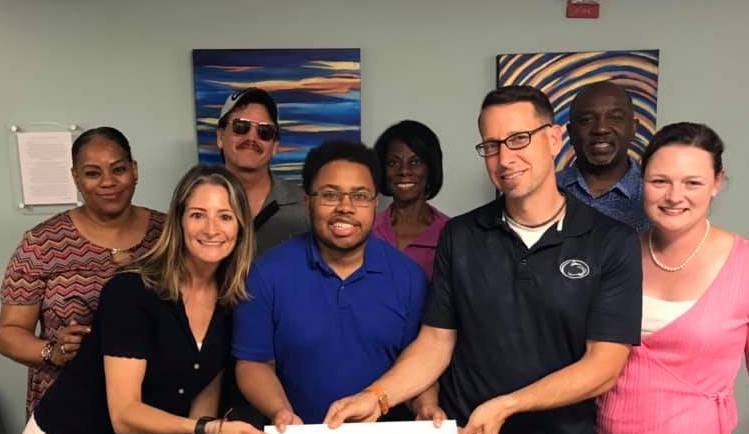Rebuilding Life After Brain Injury: Support, Hope, and Opportunity
The following blog will explain traumatic brain injury, how support services help with recovery, and how vocational programs offer hope through employment and skill-building.
The consequences of a TBI can affect someone’s life instantly. These effects may last a long time and can be serious, whether resulting from a car accident, a fall, or a sports injury. Recovery means more than just getting medical help; it also focuses on making you capable of living again. Here, access to brain injury support and training becomes very important.
Traumatic Brain Injury Overview
Undergoing TBI happens when a sudden blow harms the brain. Symptoms include anything from a headache to a significant head injury that impacts speech, memory, and emotions or has effects on a person’s ability to walk or think normally. TBI can be induced by a range of events, such as:
Falls (especially in older adults and children)
Car accidents
Sports injuries
Assault or violence
Military combat injuries
Depending on the severity, symptoms may include:
Headaches
Dizziness
Memory loss
Confusion
Difficulty both in speaking and understanding
Feeling anger, depression, or anxiety
It does not happen overnight and often requires help from a team. Along with treatment in the hospital, patients need help from their communities, therapists, and valuable tools—for example, job training and peer advice.
How Brain Injury Support Services Help Recovery
Once the first treatment is given, a person with a traumatic brain injury needs ongoing care. At this point, support services for brain injury are beneficial.
These services may contain:
1. Counseling and Mental Health Support
Someone with a TBI may develop mood changes, anxiety, or depression. Discussing problems with a counselor can help people overcome emotional difficulties and gain strength.
2. Cognitive Therapy
TBI usually leads to difficulties with remembering, concentrating, and deciding. Exercise-based cognitive therapy improves brain function by asking the brain to repeat activities.
3. Physical and Occupational Therapy
As a result, people can restore lost strength and movement and start completing everyday activities such as dressing, cooking, and driving.
4. Peer Support Groups
Speaking with people who have gone through brain injury helps you feel less isolated. Members in student groups guide, motivate, and provide practical tips.
5. Family Education and Support
Often, support services cover how to help and communicate with the person after suffering a TBI.
The Power of Brain Injury Vocational Programs
A significant obstacle after having a brain injury is finding a way back to work. Jobs bring in earnings and help people feel their lives matter and are valuable. Nevertheless, brain injury survivors often hit obstacles with memory difficulties, having trouble with movement, or being tired.
That’s where brain injury vocational programs can change lives.
These programs are designed to:
1. Assess Strengths and Abilities
Specialists evaluate what tasks the individual can do and what type of job might be a good fit.
2. Provide Job Training
Programs teach job-related skills like computer use, customer service, and time management.
3. Offer Supported Employment
This includes job coaching, resume writing help, interview practice, and sometimes even on-the-job support to make the transition smoother.
4. Workplace Accommodations
Vocational programs help educate employers on making the workplace more accessible, such as allowing flexible schedules or offering quiet spaces.
5. Ongoing Career Counseling
These services continue even after employment begins, ensuring long-term success and job satisfaction.
Why These Services Are Essential
Without proper support, people with traumatic brain injuries often struggle with unemployment, isolation, and declining mental health. Brain injury support services and vocational programs give them the tools to rebuild their lives and gain independence.
Government programs, nonprofit organizations, and private clinics offer some support. Some well-known organizations include:
Brain Injury Association of America
State Vocational Rehabilitation Services
Local Brain Injury Support Centers
These services benefit survivors, ease the burden on families, reduce healthcare costs, and build stronger communities.
Final Thoughts
A person dealing with a traumatic brain injury needs time to heal and doesn’t have to do it alone. Brain injury support and training courses help individuals learn to be independent, strong, and fulfilled. In case you or your loved one is going through a brain injury recovery, find help from the local and federal resources available to you. No effort is too small if it helps make our future better.
FAQs
1. What is the most common cause of traumatic brain injury?
Falls are the most common cause, especially in young and older adults. Car accidents and sports injuries are also leading causes.
2. Can someone fully recover from a traumatic brain injury?
Some people fully recover, especially from mild TBI, while others may have long-term effects. Recovery relies on the harshness of the injury, the person’s health, and the support received.
3. What are brain injury support services?
These programs help with emotional, cognitive, and physical recovery after TBI. They include therapy, counseling, peer support, and family support.
4. How do brain injury vocational programs help?
They provide job training, career assessments, and support to help individuals with TBI return to work or start new careers with accommodations.
5. Are brain injury support services covered by insurance?
Some services are covered by insurance or administration programs. Nonprofits also offer free or low-cost options. Contact local centers to learn more.




